A. After the identity of Abbadia
Abertzale? A was a vascophile. Abbadia? Approaching your identity is not easy. And it is danger, J. As Azurmendi says, build the past according to our current dreams: “In history we seek the present, and thus we want to remake – backward – the present in history. We want to make the future in the past” (Spain and the Basques). 561. Page.
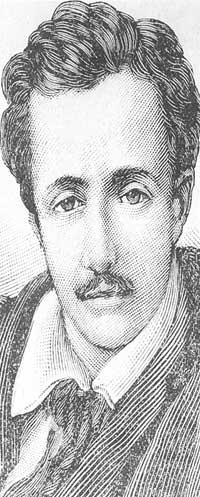
Therefore, we will try our present in the XIX. Without returning to the passage of the twentieth century, Abbadia echoes his identity. The best way to do this is from the files you have left us. Letters sent and received by Abbadia are kept in the hostel of the National Library of Paris. Each letter bears witness to the different activities it has carried out. A man with many faces appears.
For its origin and social level, for its adaptation, XIX. Abbadia affected the Basque cultural world of the 20th century. She has been creator and tractor, facilitator and tractor in various areas of Euskal Herria: not only in the cultural field, but also in the social and political. There is something for future researchers. Thinking of these researchers, they are ears that we have taken out of the cracking to taste the lantxo that we present here. We will not analyze all the cards one by one. It is the result of a great opportunity.
Fund number 21746
Fº 17: L. L. Send letter to Bonaparte (September 8, 1847) with the prize at the Floral Games of Sara: A Carlist song sent from Bizkaia: “Jaungoicoa and Erriya.”
Fº 54: Year 1875. “Prospectus” is a letter dedicated to “Zazpi Eskualherriko Eskualduner” to survey people’s odor and ways of life.
F64: In this letter to the mayor of Sara, Goyetche, Abbadia is concerned about the Carlists who have been expelled by the “alphontists” and who are evicted in the recesses of the Sara area.
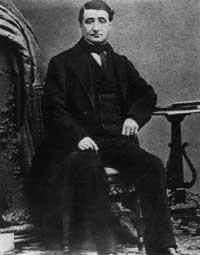
Fº 68: August 30, 1874, E. He sends a request to Intxauspe who can see him with good eyes delivering the prize at this year’s Basque Floral Games to a Biscayan song, “it seems that les Basques du Sud exposent leurs vies pour une bonne cause”.
F76: On July 6, 1875, he praised the historian Jaurgain for his project to publish his work on the history of Zuberoa.
F86: From a neighbor of Uribe received 30,000 pounds in Paris to buy weapons for the Carlists
F87: On 14 July 1887 he sent a letter to Tirso Olazabal analyzing the latest events in Gipuzkoa and giving his opinion on the political situation that Gipuzkoa suffers.
Fº 91-92: In 1876 he sent him two letters H. Poydenot, historian of Baiona, tries to mount an archive of the history of Euskal Herria in Baiona.
Fº 109: X resident in Madrid. A stranger verdu reveals his vassness: “comme basque et en pays basque je suis carliste”.
Fº 129: (year 1877): Analyzing the political situation shows his disagreement with the municipality of Paris, which has voted the subsidy in favor of penados of the Community.
Fº 170: The elaboration of the catalogue of writings of Euskal Herria has begun, in order to collect and classify the scattered writings.
Fº 189: In 1894 the poetry made with the martyrdom Maddalen Larralde was awarded at the Basque Floral Games of Sara. The theme was chosen by Abbadia herself, but poetry does not like it, since the tribute to a “martyr” of great faith is not sufficiently praised.
Fº 212: The organization “Société des Amis des Arts” tries to promote it in Baiona.
Fº 139-142, 317-319: (year 1860). Sanadon XVIII. After obtaining the Essai sur la noblesse des Basques, published in the nineteenth century, he forced Professor Arxu to make a copy and pay for his work.
Fº 364: J. Balasque has contacted the municipal councillor of Baiona to obtain books on the history of Euskal Herria, such as Notitia utriusque Vasconiae or Catalogue des Roles gascons.
Fº 555-602: L. is completing the linguistic map of Euskal Herria. L. Bonaparte informs Abbadia of his investigation. So we can know, among other things, the people of Ilbarritz and Muserol still today. In the twentieth century Basque was spoken (1862-1863).
Fund number 21747
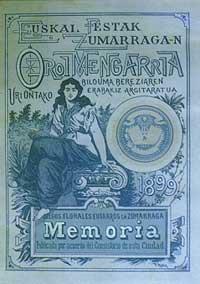
F27-36: (years 1860-1861-1862). C. Francia Abbadia explains the work that researcher Cordier is carrying out throughout history on the legal regulations used by Basque families. I would like to conduct the surveys in Hego Euskal Herria, since until then the clarity offered by Zamakola and Xaho is quite deficient. It aims to guide the general planning of research at historical and ethnological level: “l’histoire et l’ethnologie des Basques”
F136: On behalf of Abbadia, Duvoisin has been collecting the almanacs in Basque that have been printed in Baiona. We can ask a question: What has become the result of this collection of almanaques?
Fº 152: J. This extensive letter written by Duvoisin tells us that the municipality of Baiona has received two important books in 1858 and that J is thinking of republishing the Notitia de Oihenart. Duvoisin.
Fº 158-214: J. We have analyzed three letters from Duvoisin.
- In the first, written on November 26, 1858, Duvoisin deals with the Basque renaissance to Abbadia, demonstrating that in Lapurdi there are people who begin to wake up, that in Baja Navarra and Zuberoa there are still sleeping people, "il y manque deux ou trois têtes".
- In another letter, on May 14, 1869, J. mentions the confused situation suffered by the French State. Duvoisin. He is concerned about the few people who care for the Catholic Church: “la défense de la cause catholique”.
- In the third letter, Duvoisine gives Abbadia a harsh critique of the song of Altabizkarra, published under the name of the conquering writer Garay de Montglave.
Fº 660-661: sends you two cards E. Intxauspe mounted in Sara in 1874 with the Basque Floral Games:
- In the first of these, written on August 28, 1874, we know that Duvoisin rejected the poems of Bizkaia and Gipuzkoa. On the contrary, E. Intxauspe wants to reward a “battle song of the Carlists of Bizkaia”.
- In the second, on September 12, 1874, Intxauspe tells us the poetry that went through the Basque Floral Games and that was awarded. A Biscayan won the prize, both Intxauspe and Abbadia wanted it, but things got offended, angering the Republicans and nodding the Prefect, who needed his authorization to print any song. And Intxauspe demonstrates
this to the few expectations: “Le Préfet n’osera pas accorder la autorizaciÃ3n demandée pour la publication d’une chanson carliste”
Fº 710-775: Between 1866 and 1876, for about ten years A. Abbadiah and J. B. You can consult the letters written by Jaurgain. During his nineteen years of career in the city of Bourges, Jaurgain aims to publish a book on the history of Iparralde. Research has long begun exploring manuscripts in archives. But, despite being noble, Jaurgain has neither the bag nor A. He likes to get some money from Abbadia. It seems that he has not achieved what he wanted and the book he wanted to dedicate to the entire continental Basque Country was not published.
A. Abbadia and centenary of 1894
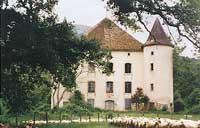
Centenary of the Convention in France in 1894 (1794-1894). The centenary of the exile of Sara and Maddalen Larralde was celebrated in Euskal Herria. A. Abbadia took the initiative and proposed the theme for the 1894 Basque Floral Games: Month prix seront donnés à St-Jean-Pied-de-Port, au mois de septembre. Nous auront le même} composer, à savoir: “l’histoire de la martyre Madeleine Larralde” (Basque Country, 1894).
As not all poets knew the event of Sara, A. Abbadia herself made a general presentation: “Il y a juste un siècle, in 1794, dans toute la France, and compris le Pays Basque, les mécréants étaient maîtres, c’étaient les ennemis de Dieu” (Euskal Erria, 1894). In 1895 and 1896 he proposed the same theme. This year, in Maule, the award went to the parish priest of Orzaiz, Laurent Ari, enemy of the Republicans.
A. Abbadia and colonialism
XIX. In the 20th century, the French State had been waging a far-reaching and prolonged struggle for the access and strengthening of colonies, especially in Africa. At the same time, Ipar Euskal Herria suffered an important emigration. Evicted the hamlets of Zuberoa, Baja Navarra and Lapurdi, the youth moved to America (Indies). Different opinions on emigration were shown. Already in 1853, Abbadia emigrated to Urruña at the Basque Floral Games. J. M. The humble Iribarren, for his part, opposed emigration, making news/songs of Montevideo appear in the press.
J. was the head of the Hazparn missionists. P. We can also take as a witness Arbelbide, who also denounced emigration in the book Sunday or Lord's Day. Abbadia, on the contrary, was favorable. In the newspaper Le Messager de Bayonne, on November 2, 1854, he published an article on emigration: “We cannot accept that emigration is an evil. It is, in any case, the result of surpluses of life and forces. And in the far dry areas the essence and influence of France extends.” He is especially concerned that the Algerian road is not traveled by the Basques: “Thus, the new force that can reach our beautiful colony of Algeria cannot be exploited for the future” The full text can be consulted in the municipal library of Baiona.
As an occurrence
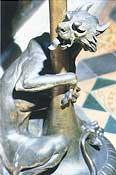
A first approach to the identity of the abbey is to work on documentary collection. In this sense we offer you a small job here. Other documents available. It is up to the reader to see what kind of vasquism or nationalism Abbadia was. Your network of friendly relationships can be analyzed. E. With Intxauspe and J. Duvoisin (both defeated monarchists and legitimists). But A. Abbadia has never been a strong politician like the other two.
On the other hand, G was for a time dedicated to the Fiestas de Azpeitia. Adema and Ch. With barnadou. Both are little known to the southern public. We owe Adema the Biblical Republic, the poems of Gauden's right (R.I.E.V. 1908-09, Euskal Erria 1893). Bernadou, on the other hand, is the Gasista and Vascophile Baiones. He wrote, among others, the book Zazpiak bat. But it was not thought that the claim of the seven Basque Peoples was the denial of the French state. In the line of a Frédéric Mistral they wanted to distribute the central power of the State at the regional or, rather, provincial level.





